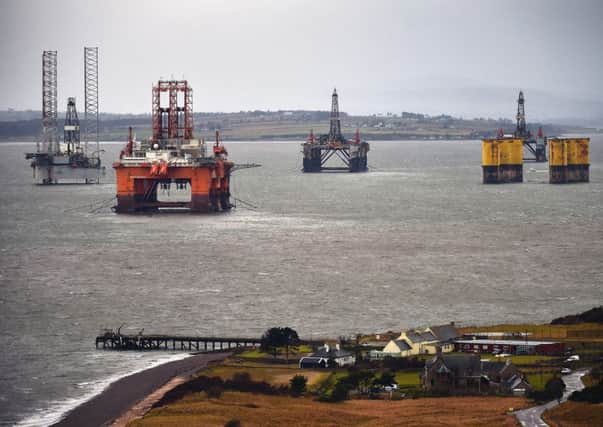Leaders: North Sea and the future | dealing with North Korea


The energy minister has a plan and there is formidable specialist and technical knowledge to hand to transform the supply chain.
Out of crisis, opportunity: this may be said to put a Panglossian cloak over the turmoil in the North Sea industry caused by the collapse in the oil price.
Advertisement
Hide AdAdvertisement
Hide AdAn estimated 65,000 jobs have already been axed over the past 18 months. One in seven barrels of oil from UK waters is being pumped at a loss. And nearly 150 North Sea oil platforms are expected to be scrapped over the next ten years.
The brutal truth is that the North Sea industry is fighting for its life. Adding in the wider repercussions for hundreds of supply and service firms across the north-east of Scotland, it would be absurd to pretend that the challenges are anything other than formidable.
But that is exactly the reason why the industry must look forward and identify areas where it has a good prospect, not only of survival but of becoming a global leader.
First, a painful truth: the best remedy for a falling oil price is …. a falling oil price. The retrenchment being forced on the North Sea is also evident in oil producing sectors across the world Diminishing global supply will bring in due course greater efficiencies, lower production costs and stabilisation and recovery in the price.
But Scotland’s oil industry should not depend on a price recovery alone. The Scottish government’s new proposals for the industry may have been slow in arriving. But it is correct in its assessment that “fundamental change” is needed to drive down costs and that firms must adapt to survive in response to the global price crash. But it also insists that the industry can still have a thriving future. The blueprint, Maximising Value, drawn up by the Industry Leadership Group and set to be unveiled today by energy minister Fergus Ewing, sets out ambitions to increase the value of the industry supply chain to £30 billion by the end of the decade.
At its heart is a drive to transform the supply chain, with functions such as subsea testing and decommissioning of ageing rigs seen as a key area of growth.
Asia and the Middle East are seen as the key overseas markets which could help drive supply chain sales from £22 billion currently to £30bn by the end of the decade.
The plan also envisages Scotland being ranked in the top three countries in respect of innovation and technology development for the sector – even after North Sea oil has run dry. The blueprint is by no means impossible to achieve. There is formidable specialist and technical knowledge to hand, and Scotland has recognised centres of excellence in subsea operations, asset protection and de-commissioning.
Advertisement
Hide AdAdvertisement
Hide AdBut the report comes with a warning that it will mean a major drive to reduce costs and enhance efficiency in the supply chain.
Mr Ewing’s focus on the future is wholly welcome: nothing could be worse than a wholesale retreat and abandonment of the skills and technical know-how. For these are the qualities needed more than ever to spur innovation, improvement and enterprise.
Dealing with Neolithic Pyongyang
Like some macabre throw-back to the worst days of the Cold War era, the hard-line Stalinist state of North Korea has launched a long-range rocket. It is a further defiance of UN resolutions following the country’s nuclear test some weeks ago.
North Korean media hailed the launch as “a fascinating vapour… trailing in the clear and blue sky in spring of February on the threshold of the Day of the Shining Star”.
Few outside Pyongyang believe a word of this.
The UN Security Council met yesterday afternoon. It has strongly condemned the launch and said that it would soon adopt a new sanctions resolution in response.
Both the US and Japan have called for stronger action. US Ambassador to the UN Samantha Power said Washington would now “ensure that the Security Council imposes serious consequences” on Pyongyang – sentiments echoed by Japanese envoy Motohide Yoshikawa.
However, given the regime’s previous disregard of UN resolutions, it is to China that the world now looks to moderate the behaviour of North Korea’s leader Kim Jon-un. But effective intervention from this source looks far from assured. While Beijing has spoken out forcefully against the actions of its North Korean ally, there is little sign that the North Korean leader has paid the slightest attention.
China’s leader, Xi Jinping, will be none too pleased.
Beijing may now need to reinforce its concerns with deeds – trade sanctions would be an obvious starting point. The loss of China’s goodwill may prove an isolation too far even for this politically Neolithic regime.